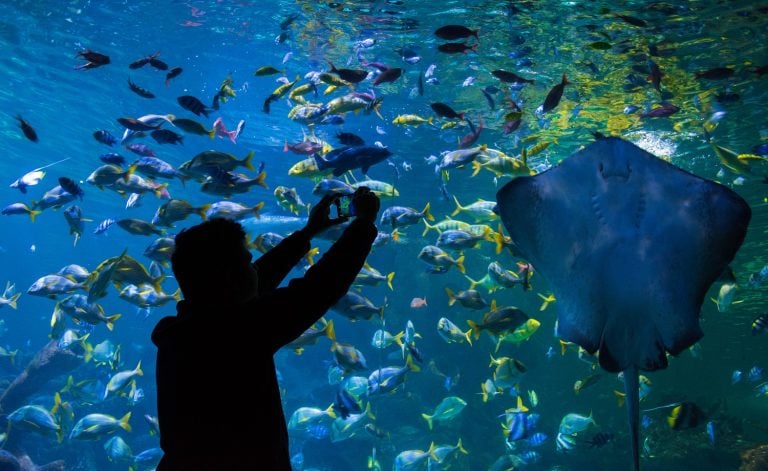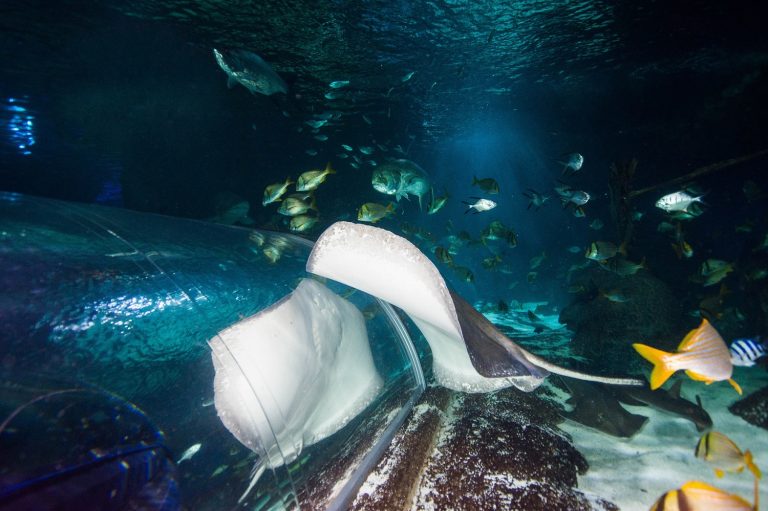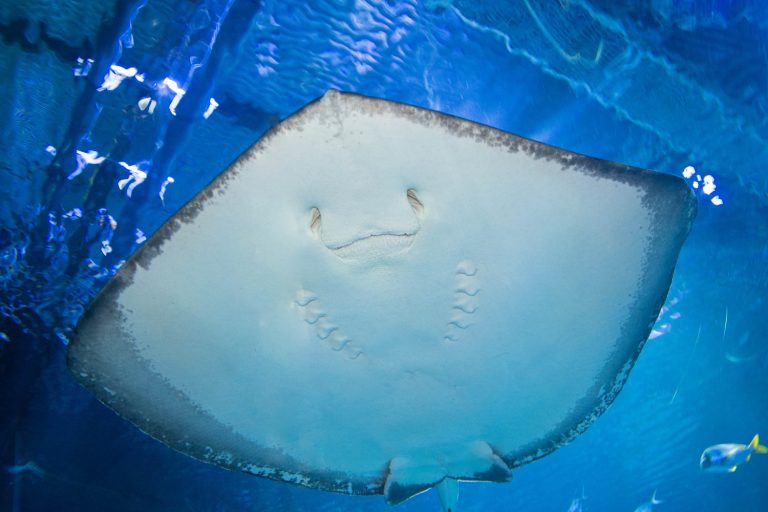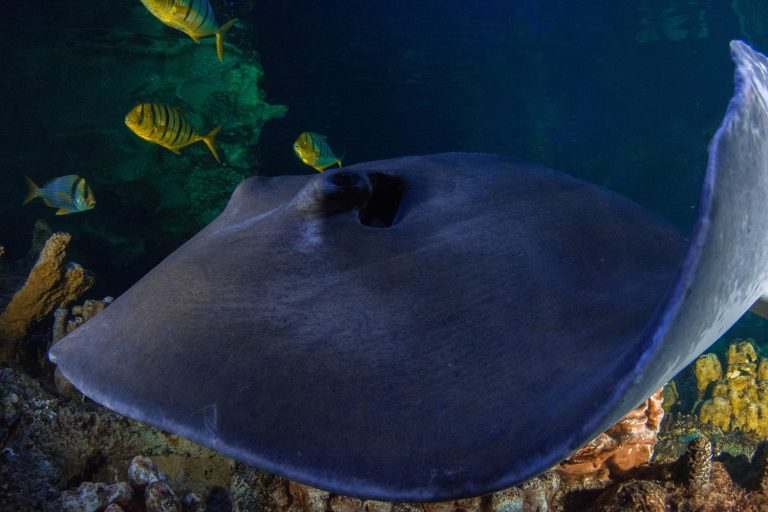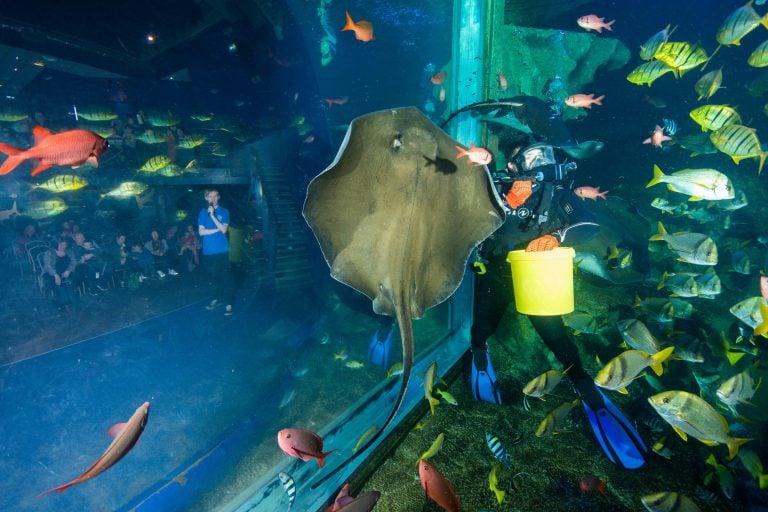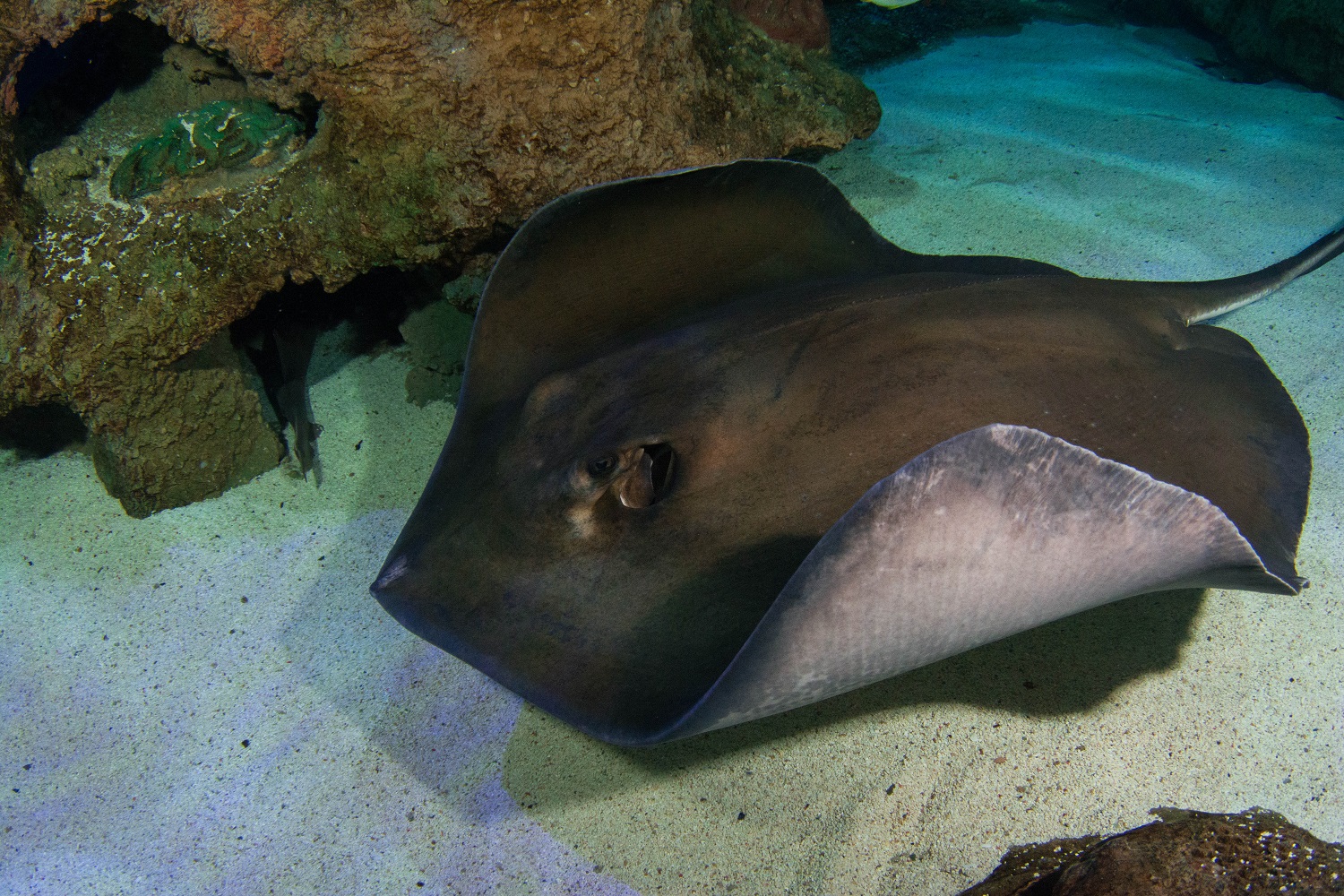
Stingrays (Myliobatoidei) live in tropical and sub tropical marine waters throughout the world. They are found in coastal areas.
Stingrays are related to sharks, as they are made up of cartilage instead of bone, plus they have electroreceptors to help them find and capture prey. They also, interestingly, have spiracles which are used by the animal to breath. These openings are cleverly positioned behind the eyes on the top of their body, allowing the stingray to breath whilst they are laying flat on the bottom of the water, camouflaged to either hide from predators or to surprise their prey!
Stingrays have strong, crushing jaws to eat tough prey such as molluscs and crustaceans. Stingrays also move very differently to most other animals, they undulate their bodies like waves.
There are a total of 220 different species of Stingrays, with some living in rivers and other fresh water habitats. Many species are listed as Vulnerable or Endangered by the IUCN, mainly due to unregulated fishing, where as other species are listed as data deficient.
Type
Rays
What do they eat?
Molluscs, Muscles and Crustaceans
Size
Up to 1.9metres
Water Type
Tropical and Sub tropical
Where are we?
All over the World
